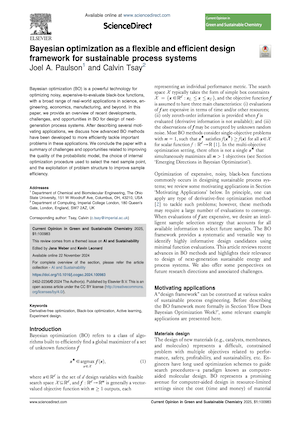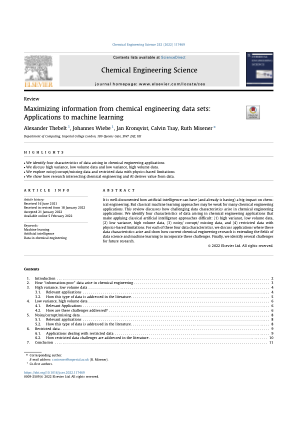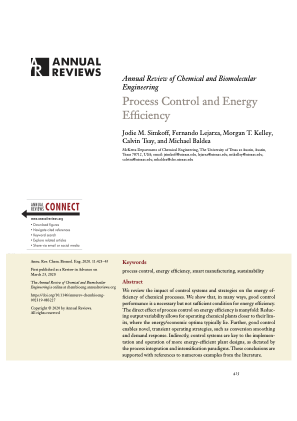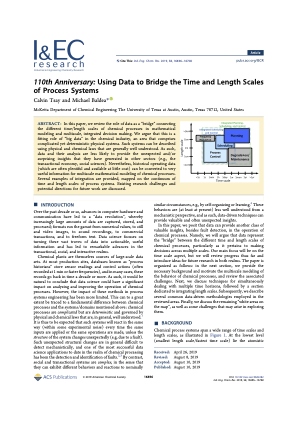Broadly speaking, we are a systems engineering group, studying methods for sequential decision making under uncertainty. We combine fundamental research in optimisation (particularly mixed-integer programming) and machine learning (particularly statistical learning) with systematic frameworks linking these fundamentals to solve engineering challenges. We pursue impactful applications for our methods in AI, process systems engineering, scheduling and control, and energy systems.
Ongoing themes include (1) optimisation methods for machine learning models, (2) deriving new (statistical) reduced-order models, and (3) applications in process and energy systems. Finally, these research strands coincide with (4) generic advancements in optimisation and software. Please see further details below (single page for mobile platforms):
1. Optimisation of Trained Machine Learning Models
Many applications embed trained machine learning (ML) models in optimisation problems. For example, ML models can be used as surrogates for functions that are otherwise difficult to represent, such as acquisition functions for black-box optimisation. On the other hand, optimisation can be used to investigate extreme behaviour (e.g., adversarial inputs) of a trained model. Our research here studies optimisation formulations for trained ML models, with a goal of improving performance and scalability.
Representative publications:
- Xie, Y., Zhang, S., Paulson, J., & Tsay, C. (2025). Global optimization of Gaussian process acquisition functions using a piecewise-linear kernel approximation. AISTATS 2025 link
- Thebelt, A., Tsay, C., Lee, R. M., Sudermann-Merx, N., Walz, D., Shafei, B., & Misener, R. (2022). Tree ensemble kernels for Bayesian optimization with known constraints over mixed-feature spaces. NeurIPS arXiv
- Tsay, C., Kronqvist, J., Thebelt, A., & Misener, R. (2021). Partition-based formulations for mixed-integer optimization of trained ReLU neural networks. NeurIPS link arXiv
- Tsay, C. (2021). Sobolev trained neural network surrogate models for optimization. Comput. Chem. Eng. link preprint
2. Reduced-Order Models for Scheduling and Control
Solving optimisation problems efficiently is often essential when making recurring decisions in scheduling and control. Therefore, a model must be carefully chosen by considering trade-offs between computational tractability and accurate representation of the underlying process. This often involves using approximations, such as via model reduction. Our research here studies methods (primarily data-driven) for deriving reduced-order models and for model dimensionality reduction.
Representative publications:
- Shapovalova, M., & Tsay, C. (2025). Training neural ODEs using fully discretized simultaneous optimization. IFAC DYCOPS 2025 link
- Burtea, R., & Tsay, C. (2023). Constrained continuous-action reinforcement learning for supply chain inventory management. Comput. Chem. Eng. link
- Cronjaeger, C., Pattison, R.C., & Tsay, C. (2022). Tensor-based autoencoder models for hyperspectral produce data. Comput.-Aided Chem. Eng. link
- Tsay, C., & Baldea, M. (2020). Integrating production scheduling and process control using latent variable dynamic models. Control Eng. Pract. link arXiv
3. Modelling and Optimisation of Process & Energy Systems
Mathematical modelling and optimisation can guide the design of new engineering systems by simultaneously considering intricate trade-offs among decision variables. Nevertheless, modelling real-world processes often requires nonlinear and/or discrete relationships, making optimisation challenging. With a focus on applications in process and energy systems, we study how improvements at the modelling and optimisation levels can expedite solutions and expand the level of detail captured during optimisation.
Representative publications:
- Tsay, C., & Qvist, S. (2023). Integrating process and power grid models for optimal design and demand response operation of giga‐scale green hydrogen. AIChE J. link
- Thebelt, A., Tsay, C., Lee, R.M., Sudermann-Merx, N., Walz, D., Tranter, T., & Misener, R. (2022). Multi-objective constrained optimization for energy applications via tree ensembles. Appl. Energy link arXiv
- Tsay, C., Pattison, R.C., Zhang, Y., Rochelle, G.T., & Baldea, M. (2019). Rate-based modeling and economic optimization of next-generation amine-based carbon capture plants. Appl. Energy link preprint
4. Computational Optimisation and Software
We continually seek generic advancements in methods and software for computational optimisation that may arise during research in the above themes. Moreover, we aim to develop open-source and user-friendly implementations for researchers and practitioners.
Representative publications:
- Kronqvist J., Misener, R., & Tsay, C. (2025). P-split formulations: A class of intermediate formulations between big-M and convex hull for disjunctive constraints. Mathematical Programming link
- Cheon, M., Lee, J.H., Koh, D.Y., & Tsay, C. (2025). EARL-BO: Reinforcement learning for multi-step lookahead, high-dimensional Bayesian optimization. ICML 2025 link
- Folch, J.P., Zhang, S., Lee, R.M., Shafei, B., Walz, D., Tsay, C., van der Wilk, M. & Misener, R. (2022). SnAKe: Bayesian Optimization with Pathwise Exploration. NeurIPS arXiv
- Ceccon, F., Jalving, J., Haddad, J., Thebelt, A., Tsay, C., Laird, C.D., & Misener, R. (2022). OMLT: Optimization & Machine Learning Toolkit. JMLR arXiv
Some review and survey papers

Bayesian optimization & process systems
(2025)

Chemical engineering & machine learning
(2022)

Process control & energy efficiency
(2020)

Bridging time & length scales
(2019)




